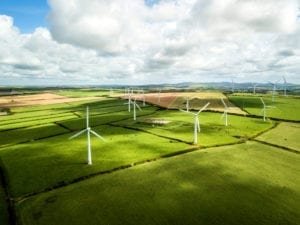Carbon dioxide emissions from fossil fuel sources reached a maximum daily decline of 17% in April as a result of drastic decline in energy demand that have occurred during the Covid-19 pandemic.
The preliminary analysis, published yesterday (19 May) in Nature Climate Change, was conducted by researchers from the University of East Anglia, Stanford University, the CICERO Center for International Climate Research and CSIRO as part of the Global Carbon Project.
‘Emissions reached their peak decline on 07 April, with a 17% decline compared to the same time last year’, said Dr Pep Canadell, CSIRO researcher and Global Carbon Project Director.
‘To put that figure in context, daily emissions declined on average between January to April by 8.6% again compared to the same period last year.’
Analysing global emissions
The impact of Covid-19 on global emissions has been estimated based on a combination of energy, activity and policy data available up until the end of April 2020.
The data were drawn from 69 countries, including Australia, that represented 97% of global emissions and 85% of the world’s population.
Estimates were then compared against daily emissions data from the same period in 2019.
‘Decreases in emissions in 2020 were largest in China where industry and communities first locked down, followed by the US, Europe and then India’, said Dr Canadell, who is also a co-author of the paper.
‘The peak 17% daily decline on 07 April was because China, the US, India and all other major carbon-emitting countries were all in a high-level of lockdown at the same time.’
Researchers estimated country-level emissions based on a ‘confinement index’ representing the effect of different national policies and estimated impact to six sectors of the economy: electricity and heating (power), surface transport, industry, public buildings and commerce, residential and aviation.
They determined the decrease in emissions for each sector based on the severity of confinement (lockdown) and impact on the sector.
 Play Video about This Rock Might Just Save The World
Play Video about This Rock Might Just Save The World Play Video about Play 2 hours of rock
Play Video about Play 2 hours of rock Play Video about Play 2 hours of brook
Play Video about Play 2 hours of brook Play Video about Play 2 hours of sheep
Play Video about Play 2 hours of sheep
















































Unfortunately, things will go back to the same as before, once people are allowed back to work. It’s going to be even worse as rich counties have lost a lot of their wealth and green energy will not be a priority. Economy and health will come first, as they should. The plastic situation is also going to get far worse as offices have been told that employees can not use kitchens – this includes taking water from a tap or a water butt. Restaurants are removing condiments with sachets. Pubs will be using plastic skiffs instead of glasses. All menus will be single-use. The same is happening all over the world.
Will anything be recycled anywhere, or will it be regarded as hazardous waste?
There is significant worry that members of poor communities, who are no longer able to work at all, may resort to eating bushmeat as they can’t afford to buy food.
Greenies just looked at the positive environmental aspects of lockdown, but should have considered worst-case scenario and we’re clearly heading towards it. The lockdowns will result in more devastation than the virus could have dealt us.